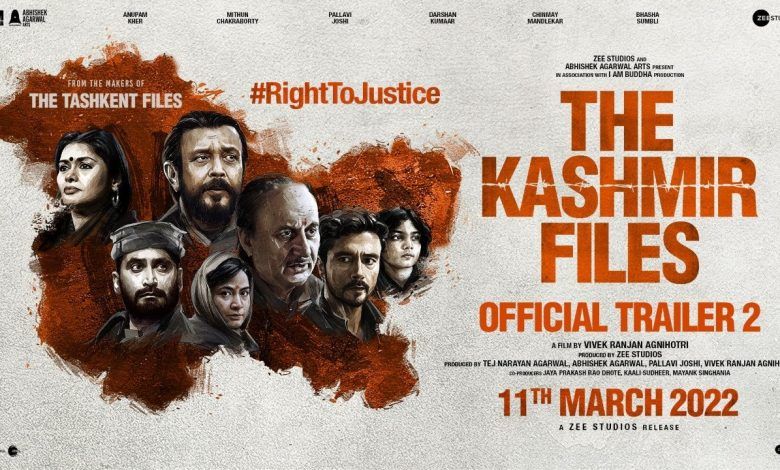Post Truth: How Feature Films Are Giving Rise To This Phenomenon In India

The Kashmir FIles has once again forced the post truth era upon us.
New Delhi (NewsReach): The word Post truth was the word of the year in 2016 declared by Oxford Dictionary, which defines post truth as “relating to or denoting circumstances in which objective facts are less influential in shaping public opinion than appeals to emotion and personal belief.”
You would recall this word from the Trump ruling period in the US. In India too this phenomenon has been arising unnoticeably. A lot of happening around us will be seen analogical to this phenomenon. Mostly it’s political. However here in this article I’ll engage with a single most trending thing across the nation, “The Kashmir Files”.
The Kashmir Files movie has grossed more than 170 crores till now. The nation is split on the legitimacy of the movie. This movie is about the exodus of Kashmiri Pandits in the year 1990 and how they have been ill treated. The facts and figures in the movie is debatable. Here I want to highlight how emotions are overpowering actual facts and is playing with the sentiments of the people and making them miserable to bifurcate between truth and fiction.
Myriad of videos have been surfacing on the net where people are seen giving extremist speech in the theatre. Most intellectuals say that these kinds of films use cinema as a means of propoganda. Besides propaganda does not always have a bad connotation. In the article published by The Print defines propganda in context of cinema, How can we define ‘propaganda’ when it is inherent to cinema? Can ‘good propaganda’ be termed as the transmission of ideas that expand the mind of an individual and thus contribute to society and bad propaganda as something that restricts the thinking of an individual and converts him to a hateful person? Beth Bennett and Sean O’Rourke (2006) thus “contrast ‘good’ rhetoric, which they claim appeals to reason, with ‘bad’ propaganda, which they claim appeals to the emotions,” as noted by researcher Michael Russel in his 2009 thesis.
Furthermore the article quotes a film professor from my alma mater Film and Television Institute of India (FTII) used to say: “The meaning of the film is already in the mind of the public and as a filmmaker, you just need to tap into that subconscious area.” This is the reason people interpret films based on their own realities and truths that they have constructed. In the case of The Kashmir files, Kashmiri Hindus are rightfully ‘relating’ to the film because this is a rare occasion when the stories of unimaginable, horrific tragedies are presented on celluloid. On the other side, some people are ‘relating’ to the film because it confirms their biases against those they hate. This is the kind of film that doesn’t ‘tell’ but rather ‘sells’ the idea of truth to you.
Whereas the release of this movie has opened up the severity of this kinds of issues. India Today reports that the cultural movement ignited by this movie should be utilised by the government. First, the government must ensure that an exodus of this kind never happens again with any community. Second, the thousands of Kashmiri Pandits must be given due justice via speedy trials.
A Kashmiri Pandit organisation called Global Kashmiri Pandit Diaspora has stated that, ‘Don’t watch this film with hindu-muslim spectacles, this shows the failure of the system.’
Above all, the rising era of post truth in this world of propoganda and fake news or partial truths, can bring and entire different scenario in the nation which can be vicious. It’s up to us to be aware and have our eyes and ears open everytime.



